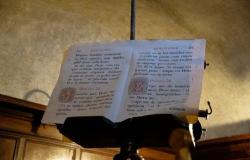One hundred years have passed since 10 June 1924 in which the socialist deputy Giacomo Matteotti was kidnapped and killed at the hands of fascist hitmen. In Italy there are hundreds of streets and squares dedicated to him. His assassination is mentioned in school textbooks, but little or nothing is said about his life. Despite being an important figure in our history, Giacomo Matteotti remains unknown to most.
Why did Mussolini decide to kill him? Why was he so uncomfortable?
Giacomo Matteotti was born in 1885 in Fratta Polesine (Rovigo), into a wealthy family. His parents owned a large store and fields. At sixteen, while attending classical high school in Rovigo, he decided to enroll in the Italian Socialist Party. A choice that in the eyes of his opponents made him appear as a class traitor. Some began to contemptuously call him “furred millionaire”: they could not accept that a rich man took the side of the poor. One of his closest collaborators revealed that even among the leaders of his party not everyone loved him: Matteotti “was more feared and esteemed than loved”.
Giacomo Matteotti and his passion for politics
Rigorous and intransigent, quick in deciding and acting, he was combative and full of energy: for this reason he was nicknamed Storm. It was graduated in Law in Bologna, and Professor Stoppato, with whom he had discussed his thesis, encouraged him to undertake a university career. But James he decided to follow his passion: politics. He had taken his first steps as a councilor and municipal administrator, immediately working to create popular libraries, solve the problem of school overcrowding, look for spaces for new classrooms…
Thanks to his expertise in law and economics, he helped his colleagues read and prepare financial statements and supported them in the various administrative practices. He liked a job well done: “I would have liked to intervene in every little thing, and maybe even take the broom away from the street cleaner to teach him how to clean, because it seemed to me that no one was doing well enough compared to what I wanted.” He was a cultured man, he spoke French, English and German. He loved books, went to concerts and the theater.
School has always been at the center of his political commitment
For him, education and knowledge were the main tool to fight inequalities and free the people from the condition of poverty and exploitation in which they found themselves. The schoolhowever, was not intended to be used solely to find a job: it had to first of all educate in beauty and develop the imagination of children and teenagers. Because only in this way, by stimulating thought, creativity and the exchange of ideas, could they dream of a better future and commit to realizing it, triggering the changes necessary for society. «Do we really want school to be a preparation for the workshop, for work? Absolutely no; school must be something whereby, at least for four or five years, ordinary people do not think about preparing for manual work, they learn something that is outside of immediate work, they also learn abstractions”.
Private life
If in his public life Matteotti has always shown himself determined, there is one area in which he has expressed fears and uncertainties: love. Giacomo met the woman who would become his partner, Velia, in the summer of 1912, during a holiday in Abetone. The spark struck instantly and the two soon began dating. They couldn’t be more different. He, an atheist and socialist; she, very religious, had studied in a Catholic college. Despite this, Velia agreed to marry Giacomo only civilly: for him, marrying in church represented an unacceptable inconsistency, a moral surrender compared to her principles. They had three children: Giancarlo (1918), Gianmatteo (1921) and Isabella (1922).
The condemnation of political violence
Giacomo Matteotti he was among the first to understand the true nature of fascism and did not hesitate to denounce its violence, abuse and malfeasance. He had had the opportunity to suffer first-hand the fascist methods in his homeland, Polesine. A very poor province of Veneto, where in the post-war period, between 1919 and 1921, the socialists had gathered enormous support, also in the wake of the euphoria for the Russian Revolution. In 1917, in fact, Lenin’s Bolsheviks had deposed the Tsar and conquered power, creating the first government led by the Soviets, i.e. the assemblies of delegates of workers and peasants. Amid the excitement and enthusiasm, many young people flocked to join the Socialist Party in those years and the maximalist current – the one that wanted to “do as in Russia” by conquering the government by force – swelled the ranks to the detriment of the reformist one to which Matteotti belonged instead, less attractive because more moderate.
For the reformists, change had to proceed gradually, hand in hand with the education of the popular classes and respecting the democratic method. Giacomo Matteotti always condemned violence, even when it came from his own political partyas during the so-called Red biennium, when some militants indulged in excesses and abuses, such as illegal occupations of factories and countryside, burning of barns, specious strikes, looting and kidnappings. For these same reasons Giacomo Matteotti was against communism, “an involuntary accomplice of fascism”: «The violence and dictatorship preached by one becomes the pretext and justification for the violence and dictatorship of the other». In all this we can perhaps glimpse one of the reasons why fascism identified its most fearsome opponent in Giacomo Matteotti.
A cultured and prepared politician
Giacomo Matteotti was not a rabble-rouser or an arsonist: he studied, read the papers, prepared seriously. He was a prepared and authoritative politician, who pressed his opponents with incontrovertible data and facts, without respite. As he did whenever he could, especially in Parliament. For example, queon 30 May 1924 in which he asked to invalidate the elections, contesting the fraud of the fascists. Or January 31, 1921 and March 10, 1921 in which he denounced the violence of the squadristi. Or in February 1924 when he published a volume entitled A year of fascist domination replying point by point to the regime’s propaganda and lies: «The numbers, facts and documents collected in these pages demonstrate […] that never so much as in the fascist year has arbitrariness replaced the law, the State subjugated to faction, and divided the Nation into two orders, dominators and subjects”.
But there is perhaps also another reason why Matteotti had to die. In fact, he had discovered a complex network of corruption involving some important exponents of fascism and an American oil company called Sinclair Oil Co. Following confidential negotiations, in January 1924 this company had obtained an exclusive concession for ten years of a large part of the Italian subsoil to conduct oil exploration: it had been authorized to do so at very advantageous economic conditions.
If the Sinclair Oil Co he profited because he had the opportunity to operate in an absolute monopoly, that is, without rivals, the leaders of fascism – including the brothers Arnaldo and Benito Mussolini – in exchange had pocketed bribes, disguised as funding for a pro-government newspaper. It seems that Matteotti also wanted to report this scandal, during the parliamentary session on 11 June 1924. He had signed up to speak, and his speech was eagerly awaited. But Mussolini decided to shut his mouth forever, before that day.
Killed because he had done his duty
The task of killing him was entrusted to the fascist Cheka, the secret police. It included a gang of hitmen led by squad member Amerigo Dùmini. Matteotti was kidnapped on the afternoon of 10 June 1924 a few steps from his home, on Lungotevere Arnaldo da Brescia, on his way to the library of the Chamber of Deputies. It was stabbed in the car and his body buried in a bush. As the historian and anti-fascist Gaetano Salvemini wrote to Velia: «He had done all his duty: and for this he was killed. I hadn’t done my duty: and that’s why they left me alone. If we had all done our duty, Italy would not have been trampled upon and dishonored by a gang of murderers. Then I made my decision. I had to return to my place in the battle. And I did everything I could to alleviate the remorse of not having always done all my duty.” Thus it was that authentic anti-fascist consciousness germinated from the martyrdom of Giacomo Matteotti.





